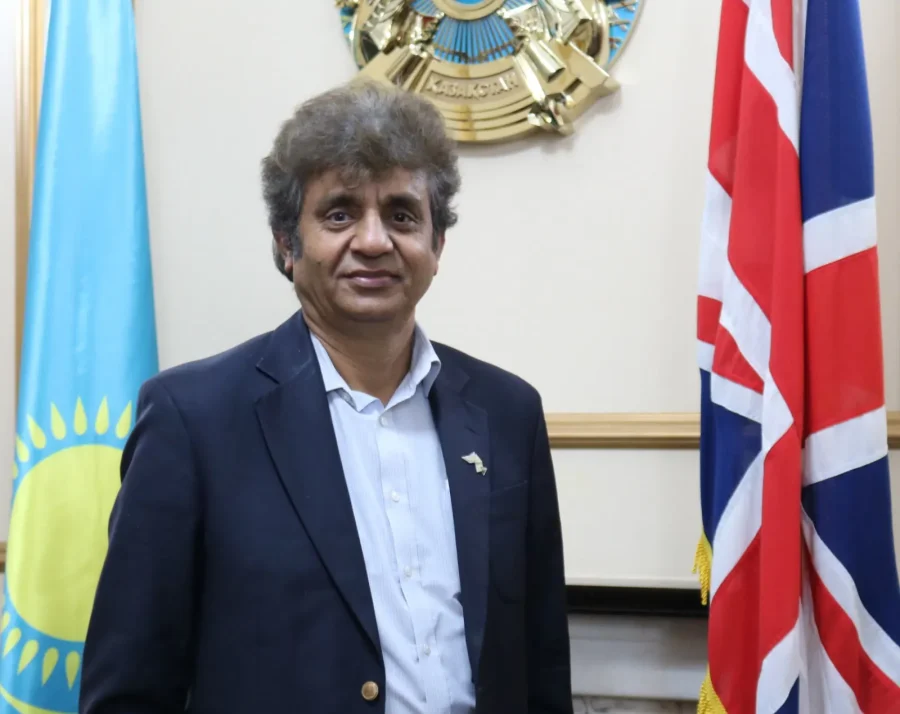Raza Syed
The Shanghai Cooperation Organization (SCO) has emerged as a pivotal regional entity in Eurasia, striving to strengthen bonds between regional actors through a model of liberal institutionalism rooted in international relations discourse. This framework ensures opportunities for cooperation and growth among rational actors via the platforms provided by international institutions. Within the SCO, the hierarchical structure has been abolished, granting each permanent member the chance to hold the leadership position for a year, fostering cooperation and facilitating growth. Consequently, Central Asian republics, notably Kazakhstan, stand poised to leverage this regional forum for the benefit of their populations, despite the presence of dominant powers such as China and Russia. Moreover, the SCO plays a critical role in promoting economic integration and infrastructure development among its members, offering Kazakhstan a strategic platform for enhancing trade, investment, and transport ties with its neighboring countries due to its strategic location at the crossroads of Europe and Asia.
Kazakhstan’s Strategic Engagement:
Kazakhstan capitalizes on the SCO’s platform, utilizing its strategic Eurasian location to enhance trade, investment, and transportation links. The nation’s significant role in steering the SCO’s focus on economic, security, and communication initiatives reflects its commitment to regional stability and cooperation.
Kazakhstan’s Vision for a Sustainable Future:
Kazakhstan’s chairmanship of the SCO has been instrumental in advancing significant projects, such as the Cooperation Program to Counter Terrorism, Separatism, and Extremism. The country’s comprehensive strategy aims to bridge the East-West divide and promote a sustainable future.
Addressing SCO’s Economic and Financial Hurdles:
Despite the progress, the SCO faces challenges, particularly the absence of substantial economic projects and financial frameworks. Kazakhstan’s innovative approach, involving the Astana International Financial Center, seeks to foster financial investments and regional development within the SCO.
A Model of Diplomatic Stability:
Kazakhstan’s foreign policy, characterized by predictability and balance, underscores its role as a key player in the SCO. This strategic approach is expected to continue guiding Kazakhstan’s efforts in fostering unity and development across the region.
Kazakhstan’s Role in the SCO:
The country’s commitment to regional unity and problem-solving within the SCO framework.
Chairmanship Goals:
Kazakhstan’s focus on combating transnational crime and enhancing cooperation on security issues during its SCO presidency.
Peace, Security, and Sustainable Development:
The nation’s efforts in nuclear non-proliferation, conflict resolution, and sustainable practices under the SCO umbrella.
Cultural and Humanitarian Initiatives:
Proposals to deepen cultural ties and address environmental challenges among SCO countries.
Central Asia’s Stability and Prosperity:
How Kazakhstan’s strategic position influences its role in promoting regional stability and integration.
Kazakhstan’s Vision for Regional Unity:
Under the leadership of President Kassym-Jomart Tokayev, Kazakhstan has set clear objectives for its tenure as the SCO chair, prioritizing the fight against transnational crime, drug trafficking, and cybercrime. The nation aims to revise cooperative frameworks to address terrorism, separatism, and extremism from 2025-2027, reflecting a long-term vision for regional security.
Advancing Peace and Sustainable Development:
Kazakhstan’s presidency of the SCO is expected to emphasize peace, security, and sustainable development, continuing its legacy in nuclear non-proliferation and energy transition. The country’s initiatives are designed to address not only its own challenges but also those of Central Asia, elevating the region’s voice on the global stage.
Fostering Cultural and Environmental Cooperation:
Kazakhstan’s proposals for the SCO include the “Spiritual Shrines of the SCO” project and the SCO International Scientific and Practical Seminar in Turkestan, focusing on the heritage of the Golden Horde. These initiatives aim to combat climate change and promote environmental protection, with plans to establish significant intergovernmental agreements and a Memorandum of Understanding with UNEP.
Enhancing Kazakhstan’s Influence and Regional Integration:
Kazakhstan’s central location in Eurasia positions it as a key mediator and collaborator within the SCO, potentially leading to a more unified and prosperous Central Asia. The country’s chairmanship signifies its growing influence and commitment to regional stability and integration, with the potential to address critical security issues and foster economic policy agreements that enhance regional cohesion.
Conclusion:
In conclusion, Kazakhstan’s strategic foreign policy and active leadership in the SCO are pivotal in expanding the organization’s agenda and promoting stability and development across Central Asia. The country’s initiatives reflect a comprehensive approach to addressing regional and global challenges, underscoring its role as a unifying force in the Eurasian landscape.
[The Writer is a seasoned journalist of Pakistani descent based in the UK, brings over three decades of international journalism experience. His expertise spans several countries, with a particular focus on Central and South Asia.]










